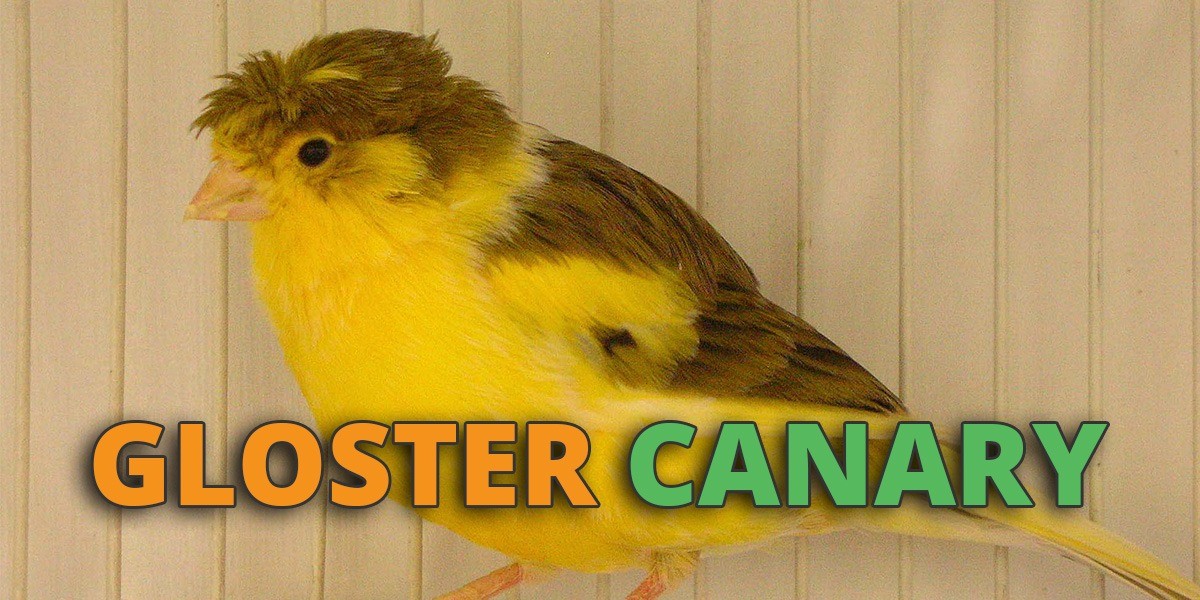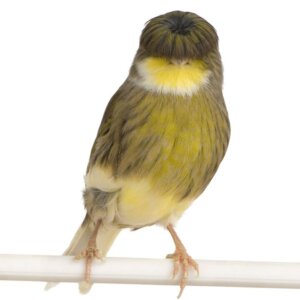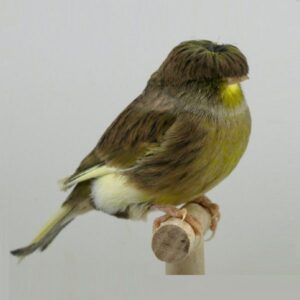Is A Gloster Canary A Singing Bird?
Yes, a Gloster Canary is a singing bird. Known for its cheerful melodies, this bird is popular among bird enthusiasts.
Gloster Canaries charm many with their delightful songs. Originating from the Canary Islands, these small birds are bred for their singing abilities and unique appearance. With their bright plumage and crest of feathers on their heads, they are not just visually appealing but also bring joy with their tunes.
Owners often find their homes filled with sweet, melodic sounds that can brighten anyone’s day. This blog will explore the singing traits of Gloster Canaries, what makes them unique, and tips on how to care for these beautiful songbirds.
Let’s dive into the world of Gloster Canaries and discover their enchanting melodies.
Introduction To Gloster Canaries
The Gloster Canary is a popular pet bird. It is known for its cheerful nature and beautiful song. These little birds are a delight to have around.
Origin And History
The Gloster Canary originated in England. Breeders developed this bird in the 1920s. They wanted a small, attractive canary. The breed quickly became popular.
The Gloster Canary was named after the city of Gloucester. Breeders aimed for a bird with a unique appearance. They succeeded in creating a charming and distinct bird.
Physical Characteristics
Gloster Canaries are small birds. They usually measure about 4.5 inches in length. Their bodies are compact and rounded.
These birds come in two types. The “Corona” has a rounded crest on its head. The “Consort” has a smooth head without a crest. Both types are equally loved by bird enthusiasts.
Gloster Canaries have bright, colorful plumage. Their feathers can be green, yellow, or a mix of colors. They have short, stubby beaks and expressive eyes.
The unique looks of the Gloster Canary make it a favorite. Their charming appearance adds to their overall appeal.

Credit: www.youtube.com
Vocal Abilities Of Gloster Canaries
Gloster Canaries are known for their charming appearance and delightful songs. These birds are popular among bird enthusiasts for their unique vocal talents. In this section, we will explore their song patterns and compare their singing with other canaries.
Song Patterns
Gloster Canaries have distinct song patterns. They produce a series of melodious notes and trills. Their songs are often soft and sweet, creating a soothing ambiance. Male Gloster Canaries are the primary singers, displaying their vocal abilities to attract mates and mark their territory.
These birds have a natural ability to imitate sounds. They can learn new tunes from their surroundings. This makes their songs varied and interesting. Their song patterns are not as loud as some other canaries, but they are equally captivating.
Comparison With Other Canaries
When comparing Gloster Canaries with other canaries, there are noticeable differences. While all canaries are known for their singing, each breed has unique characteristics.
| Canary Type | Song Characteristics |
|---|---|
| Gloster Canary | Soft, melodious, varied |
| American Singer Canary | Loud, clear, rhythmic |
| Spanish Timbrado Canary | Fast, metallic, complex |
| German Roller Canary | Deep, smooth, rolling |
The American Singer Canary is known for its loud and clear songs. They have a rhythmic pattern that is easy to recognize. The Spanish Timbrado Canary produces fast and metallic sounds, often with a complex structure. The German Roller Canary is famous for its deep and smooth rolling notes.
In contrast, the Gloster Canary offers a softer and more varied song. Their tunes are more melodious and less intense. This makes them perfect for those who prefer a gentle background melody.
Training Gloster Canaries To Sing
Training Gloster Canaries to sing can be a rewarding experience. These small birds have a natural inclination to sing, but they benefit from proper training. With patience and consistency, you can enhance their singing ability.
Best Practices
Start training your Gloster Canary at a young age. Young birds are more adaptable and easier to train. Ensure the bird is healthy and well-fed. A well-nourished bird is more likely to sing.
Play recordings of canary songs for your bird. This helps them learn melodies and rhythms. Use high-quality recordings for the best results. Play the songs in the morning when the bird is most active.
Provide a quiet and calm environment. Birds need a stress-free setting to sing well. Avoid sudden noises and disturbances that might scare the bird.
Common Challenges
One common challenge is the bird’s health. A sick or stressed bird will not sing. Ensure your bird gets regular check-ups and a balanced diet.
Another challenge is environmental noise. Loud or continuous noise can deter your bird from singing. Keep the bird’s cage in a quiet area of your home.
Patience is key. Birds take time to learn new songs. Do not rush the training process. Consistent, daily practice will yield the best results.
By following these tips, you can help your Gloster Canary become a beautiful singer. Enjoy the process and listen to the melodies your bird creates.
Health And Well-being For Optimal Singing
A Gloster Canary’s song is a delight to bird enthusiasts. Ensuring your Gloster Canary’s health and well-being is vital for optimal singing. Proper care supports their vocal talents and keeps them happy. Let’s explore key aspects of their health and well-being.
Diet And Nutrition
A balanced diet is essential for a Gloster Canary’s health. Their diet should include:
- Seeds: A mix of canary seeds is ideal.
- Fresh Vegetables: Offer greens like spinach and kale.
- Fruits: Small pieces of apple or pear are good treats.
- Protein: Boiled eggs provide necessary protein.
Ensure fresh water is always available. Avoid giving them avocado or chocolate as these are toxic to birds.
Habitat And Environment
A comfortable habitat enhances your Gloster Canary’s well-being. Here are some tips:
| Aspect | Recommendation |
|---|---|
| Cage Size | At least 18 inches in height and width |
| Perches | Provide varied diameters for foot health |
| Toys | Include mirrors and bells for stimulation |
| Location | Place the cage in a quiet, draft-free area |
Clean the cage weekly to prevent illness. Include a shallow dish for bathing, as Gloster Canaries enjoy staying clean.
With proper diet and a suitable environment, your Gloster Canary will be in peak condition to charm you with its song.
Breeding Gloster Canaries For Singing
Gloster Canaries are small, vibrant birds known for their melodic voices. Breeding these birds for singing requires patience and knowledge. With selective breeding techniques, you can enhance their singing abilities. This post covers the key steps to achieve this goal.
Selective Breeding Techniques
Selective breeding involves choosing birds with the best singing traits. Listen to the male birds carefully. Select those with varied and sweet songs. Pair these males with females that have a pleasant chirp. This can increase the chances of producing chicks with good singing skills.
Keep a detailed record of each bird’s song quality. Track their progress over time. This helps in making informed decisions during the breeding process. Focus on birds that show promise early. They are likely to pass on their singing traits to their offspring.
Raising Chicks
Once the chicks are born, proper care is crucial. Provide a balanced diet to support their growth. Healthy chicks have a better chance of developing strong singing abilities. Ensure they get enough protein and vitamins.
Expose the chicks to adult males with good songs. They learn by listening and mimicking. The more they hear, the better they will become. Create a quiet environment for them to practice. Reduce distractions to help them focus on their training.
Be patient and consistent with their training. It takes time for young birds to develop their skills. With the right approach, you will soon hear the sweet melodies of your Gloster Canaries.
Popular Gloster Canary Singing Competitions
Gloster Canary Singing Competitions are a treat for bird enthusiasts. These events showcase the melodic skills of the Gloster Canaries. Bird owners from various regions gather to exhibit their canaries’ unique singing abilities.
Competition Formats
Gloster Canary singing competitions vary in format. Some are held indoors, while others take place outdoors. The birds sing in individual cages, allowing judges to focus on each canary’s performance.
Competitions may include:
- Solo performances
- Group performances
- Timed sessions
Each format has its own set of rules and judging criteria, ensuring fair assessments of the birds’ talents.
Winning Criteria
Judges evaluate several factors to determine the winners. The most important criteria include:
- Pitch: The accuracy and clarity of the bird’s notes.
- Melody: The complexity and beauty of the tune.
- Volume: The loudness and projection of the song.
- Consistency: The bird’s ability to maintain a steady performance.
Each judge assigns scores based on these criteria, and the bird with the highest total score wins.
Understanding these formats and criteria can enhance the enjoyment of Gloster Canary singing competitions. Enthusiasts can appreciate the dedication and skill involved in training these wonderful birds.
Caring For A Singing Gloster Canary
Caring for a singing Gloster Canary requires attention to their unique needs. These lively birds bring joy with their melodic songs. Proper care ensures they remain healthy and happy.
Daily Care Tips
Provide your Gloster Canary with fresh water each day. Clean their water dish to prevent bacteria. Offer a balanced diet of seeds, fruits, and vegetables. Remove uneaten food to keep the cage clean. Ensure the cage is spacious with perches for exercise. Change the cage liner weekly to maintain hygiene.
Health Monitoring
Observe your canary’s behavior daily. Look for signs of illness like lethargy or changes in singing. Regularly check their feathers and feet for abnormalities. A sudden drop in singing can indicate health issues. Consult a vet if you notice any concerning symptoms. Keep the cage in a draft-free area to avoid respiratory problems.

Credit: www.pinterest.com
Common Myths About Gloster Canaries
There are many myths about Gloster Canaries. Some say they do not sing well. Others believe they are not friendly birds. These myths can confuse new bird owners. Let’s clear up some common misconceptions about Gloster Canaries.
Dispelling Misconceptions
Gloster Canaries are often thought to be quiet birds. This is not true. They are actually known for their beautiful singing. Some people believe only male Gloster Canaries sing. While males are louder, females can sing too.
Another myth is that Gloster Canaries are hard to care for. They are quite easy to look after. Just provide a clean cage, fresh water, and a balanced diet. These birds are also very friendly. They enjoy socializing with their owners.
Fact Vs. Fiction
| Myth | Fact |
|---|---|
| Gloster Canaries do not sing well. | They are known for their beautiful songs. |
| Only male Gloster Canaries sing. | Both males and females can sing. |
| Gloster Canaries are hard to care for. | They are easy to care for with proper attention. |
| Gloster Canaries are not friendly. | They are very social and friendly birds. |
Understanding the truth about Gloster Canaries can help you appreciate these lovely birds. They are not just pretty to look at; they are also delightful companions with charming songs.

Credit: m.youtube.com
Frequently Asked Questions
What Is A Gloster Canary?
A Gloster Canary is a small, colorful bird. It’s known for its unique appearance, especially its “corona” or cap of feathers.
Do Gloster Canaries Sing?
Yes, Gloster Canaries are singing birds. They are known for their pleasant and melodious songs.
How To Care For A Gloster Canary?
Provide a spacious cage, fresh water, and a balanced diet. Regular cage cleaning is essential for their health.
Are Gloster Canaries Good Pets?
Yes, they are excellent pets. They are friendly, easy to care for, and their singing is delightful.
Conclusion
Gloster Canaries are indeed singing birds. They charm with their melodic tunes. Their songs brighten any home. Bird lovers find joy in their cheerful melodies. Gloster Canaries are easy to care for. Their singing adds a special touch. These birds bring music and happiness.
Perfect for any bird enthusiast. Consider a Gloster Canary for a delightful, singing companion.
Hello Dear, I'm Poli Kolymnia, owner of many birds (including budgies).
With a deep passion for these feathered companions, I'm here to share my expertise and extensive knowledge on birds care.
My articles cover essential topics like diet, housing, care, and health, providing practical tips to help you create a happy and thriving environment for your birds.







